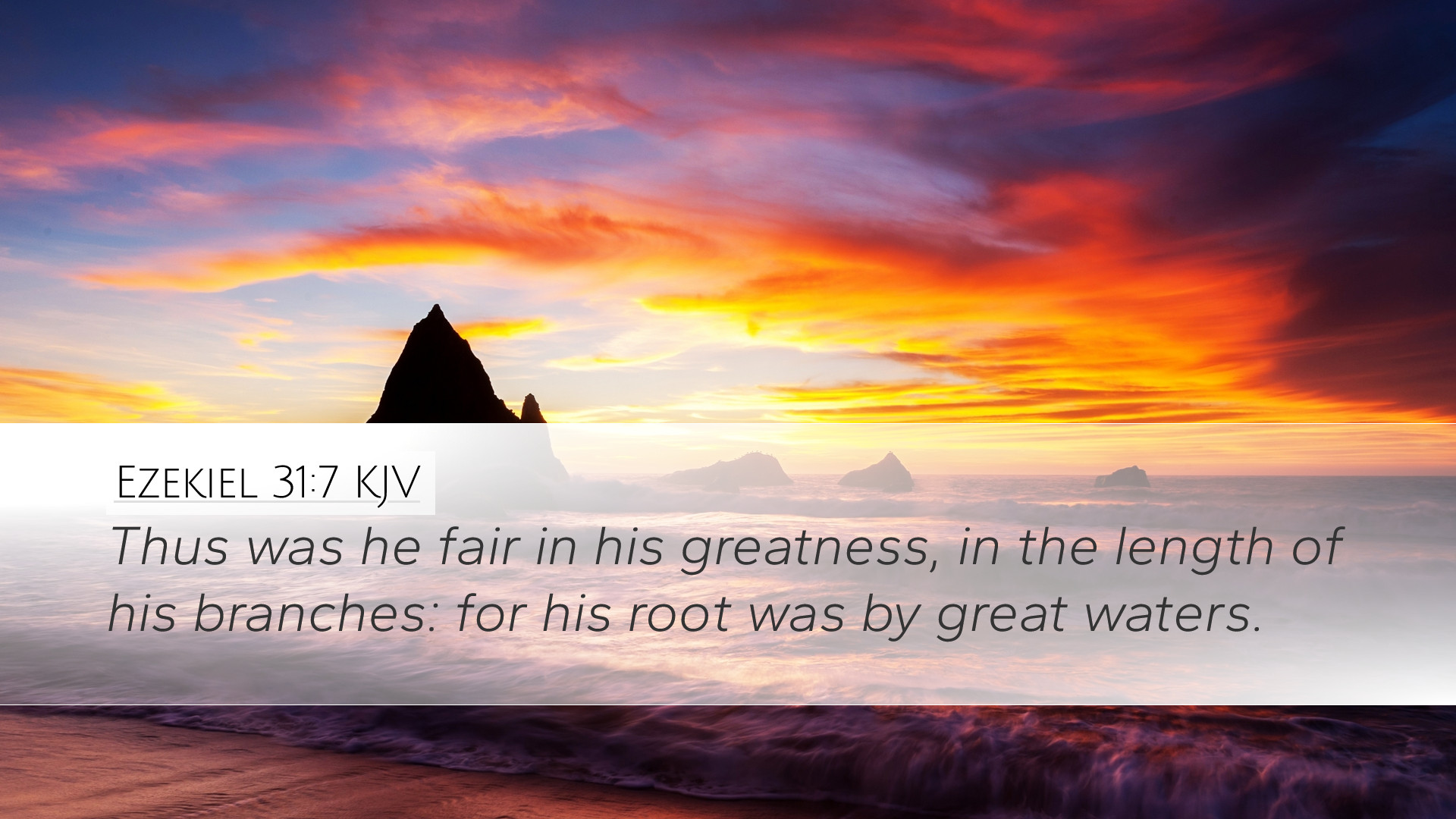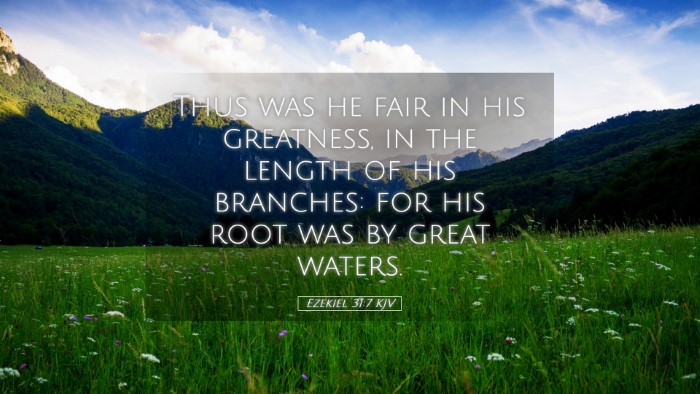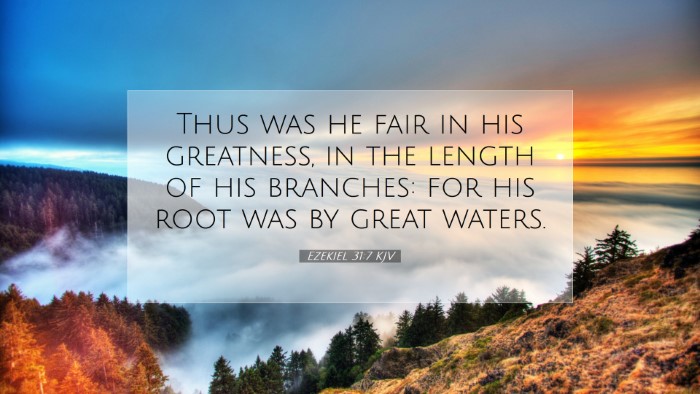Ezekiel 31:7 - An Exegesis of Majesty and Downfall
Ezekiel 31:7 states, "Thus was he fair in his greatness, in the length of his branches: for his root was by great waters." This verse arises within a larger context where God, through the prophet Ezekiel, communicates profound truths about pride, glory, and eventual downfall, using the metaphor of a mighty tree. This passage provides a rich tapestry of theological insights worthy of reflection by pastors, students, theologians, and Bible scholars alike.
Contextual Background
The verse occurs in a prophetic passage addressing the Pharaoh of Egypt, likening him to a majestic tree that was once great but ultimately subject to divine judgment. Ezekiel's use of the tree metaphor resonates throughout scripture, symbolizing strength and prosperity (cf. Psalm 1:3; Jeremiah 17:8).
The Majesty of the Tree
The description of the tree highlights its beauty and greatness. Here, the tree "was fair in his greatness," indicating that it attained a level of splendor that was admired. The term fair suggests not only physical beauty but also a sign of strength and fullness of life.
Matthew Henry's Commentary notes that the tree's greatness is tied to its long branches, a metaphor for the expansive reach of the Pharaoh's power and influence. These branches, which extend far, illustrate how kingdoms, like trees, can spread their shade over many, appearing to offer protection and sustenance to others.
The Roots: A Foundation of Strength
The root of the tree "was by great waters," indicating a source that provided the necessary nourishment to grow and thrive. The imagery of being by great waters symbolizes the abundant resources and support upon which the tree depended.
Albert Barnes elaborates that this depicts Egypt’s historical reliance on the Nile River's life-giving waters. Thus, the roots represent not just stability but also the divine provision that undergirds success and prosperity, pointing to the principle that all earthly powers and glories are grounded in God’s providential hand.
Lessons on Pride and Judgment
The beauty and strength of the tree serve as a poignant reminder of human pride and the fleeting nature of earthly glory. Like the tree in Ezekiel 31, many rulers and nations may appear to reach great heights, but without humility and recognition of God's sovereignty, such greatness is ultimately temporal.
Adam Clarke comments that this passage warns against the arrogance of those in power, suggesting that when authority is exercised without acknowledgment of its source, downfall is inevitable. The beautiful stature of the tree is contrasted sharply with its impending judgment, introducing a sobering consideration for leaders and nations alike.
Theological Implications
Theologically, Ezekiel 31:7 invites reflection on the intersection of divine sovereignty and human agency. God demonstrates control over the rise and fall of nations through vivid imagery. The grandeur of the tree, while awe-inspiring, ultimately serves to highlight the reality that all power resides with God.
- God's Sovereignty: This text reaffirms that God is the ultimate authority over all creation and that He can raise nations to prominence or bring them to ruin.
- The Nature of True Greatness: God's perspective on greatness differs from human evaluations. True greatness is not in external beauty or power but in humility before God.
- Call to Humility: Leaders and believers alike are called to recognize their dependence on God, lest they, like the majestic tree, face unexpected judgment.
Conclusion
Ezekiel 31:7 offers a profound reflection on the nature of glory and the dangers of pride. By understanding the intricate imagery used in this verse, pastors and scholars are invited to consider the full scope of God's authority, the nature of true strength, and the vital call to humility in the face of divine sovereignty. As they delve deeper into this scripture, it serves as both a warning and an encouragement to abide in the source of all life and sustenance—the Great Waters that nourish our roots.


